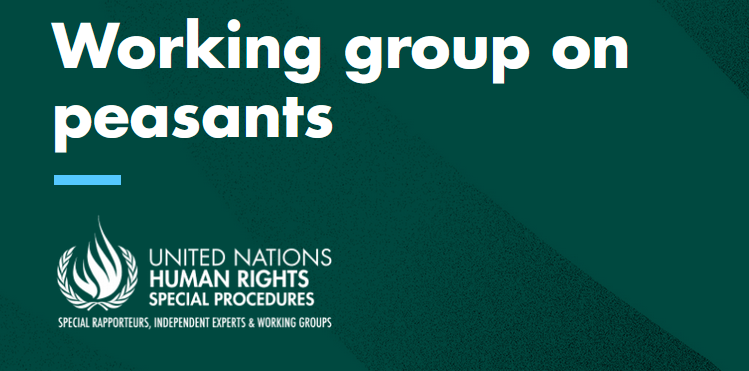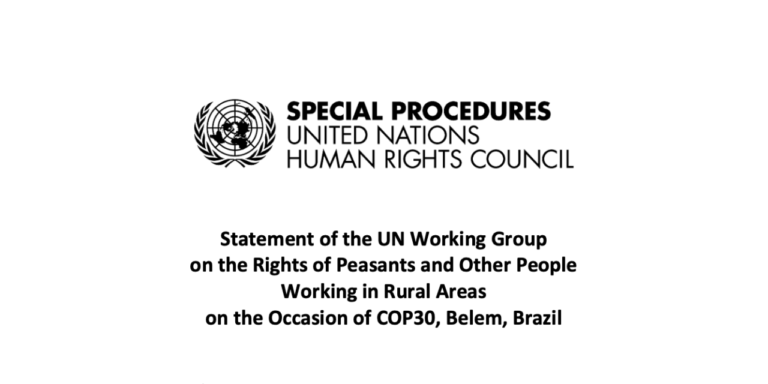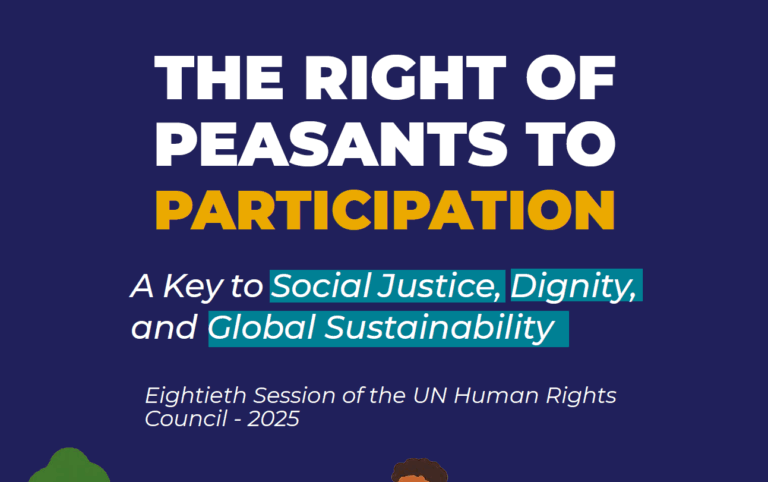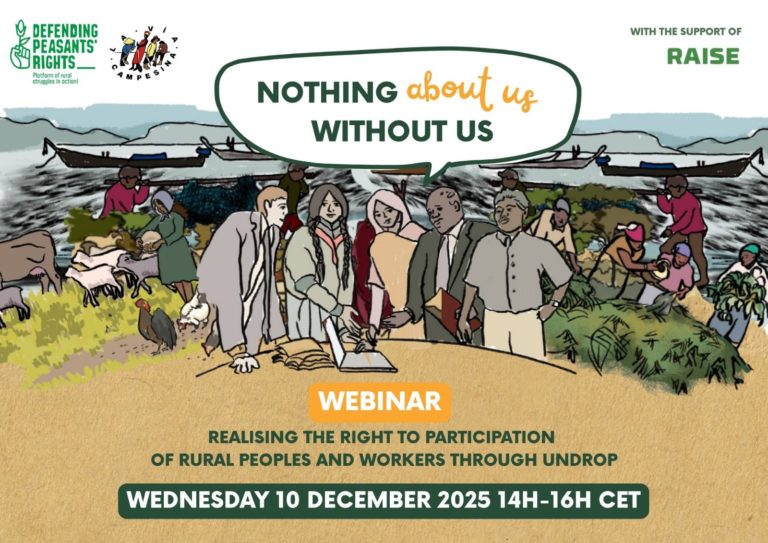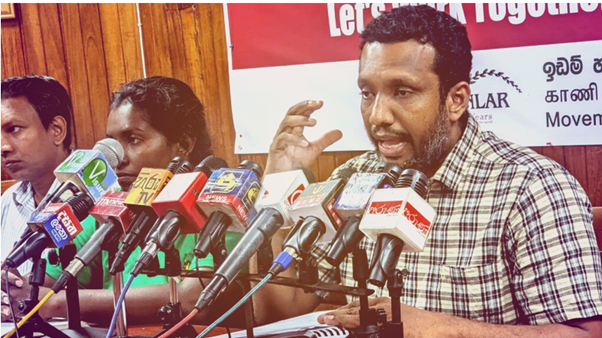Introducing the members of the UN Working Group on UNDROP
At its 54th session in October 2023, the UN Human Rights Council adopted a resolution establishing a Working Group on the Declaration of the Rights of Peasants and Other Rural Workers. The five experts making up this group were appointed at the following session, on April 5th, 2024. And on September 19th 2024, these experts presented their first report to the Human Rights Council.
This Working Group is the culmination of a new phase in the struggle for peasants’ and workers’ rights at international level. It is a victory that opens up new opportunities for the continuation of the struggle. The experts’ mandate is both to disseminate UNDROP and to monitor its implementation. To carry out this mandate, they have access to the prerogatives of the UN’s special procedures on human rights: consultations, country visits, receiving information and complaints. Through its actions, the working group has the opportunity to give new visibility to the rights of peasants and workers, and a new dynamic to the implementation of their rights. To find out more about this mandate, read the Cetim, La Via Campesina and Fian International fact sheet.
The Working Group has a dedicated page on the website of the High Commissioner for Human Rights. The page enables everyone to familiarize themselves with the workings of the Group, as well as to get in touch with the experts.
To make the Working Group as useful a tool as possible for rights holders, we present here the members of the Group, in order to make them known and as accessible as possible.
Meeting the members
Ms. Geneviève SAVIGNY (France), Chair-Rapporteur
Geneviève Savigny is a retired peasant in the South of France. She is part of the French union Confédération Paysanne, which is a member of La Vía Campesina. As member of Confédération Paysanne she was a representative of the European Coordination of La Via Campesina for many years. Ms. Savigny contributed to intergovernmental working group on the rights of peasants to present the situation of European peasants. She was able to participate in all stages of the negotiation of the Declaration on the Rights of Peasants and Other Rural Workers (UNDROP). Mrs. Savigny also made representations to the States to inform them of the relevance of the Declaration, including in the context of the European agriculture.
Ms. Uche Ewelukwa OFODILE (Nigeria), Vice-Chair
Uche Ewelukwa Ofodile is a Professor of Law at the University of Arkansas School of Law and a Senior Fellow at the Harvard Kennedy School (HKS). She is a recognized expert in international human rights law, international trade and investment law, international food law and intellectual property law. She has a doctorate (PH.D) degree in law from Harvard Law School. Professor Ofodile has shared her knowledge and expertise through her studies and research but also while working with NGOs (Human Rights Watch) and with various international organizations (e.g. UNCTAD) and participating to advocacy efforts with grassroots organizations.
Mr. Carlos DUARTE (Colombia), Vice-Chair
Carlos Duarte is a professor and coordinator of the Line of Applied Research in Rural Development and Land Management at the Institute of Intercultural Studies of the Javeriana University of Cali. He is an anthropologist having earned a PhD in Sociology from the University of PARIS III. He is Member of the Commission of experts that developed the concept of peasantry in Colombia. He was part of the working commission that designed the statistical categories for the elaboration of the self-identification questions of peasants for the National Institute of Statistics of Colombia. He advises various proposals of the peasant organizations CNA, ANZORC and ANUC for dialogue with the Colombian State. Mr. Duarte has experience in the management of territorial, interethnic and intercultural conflicts for the National Land Agency in Colombia.
Ms. Shalmali GUTTAL (India)
Shalmali Guttal is a policy researcher, analyst and popular educator with over 30 years of experience in the defense of human rights. She works in close collaboration with rural communities, organizations of small-scale food producers, workers, women and indigenous peoples, and civil society and human rights organizations. Her areas of work include food sovereignty, land governance, agrarian reform, gender equality, trade, investment, and post-conflict transitions. Her expertise has been developed through applied research, field work, and participation in national, inter-governmental and multilateral processes. She has written extensively on the right to food, food sovereignty, rural development, land governance, gender equality, and impacts of economic policies on human rights. She works with the organizations Focus on the Global South and is a member of the International Panel of Experts on Sustainable Food Systems (IPES-Food).
Mr. Davit HAKOBYAN (Armenia)
Davit HAKOBYAN is a Professor and lawyer. He obtained his Ph.D. thesis at Yerevan State University (Armenia), earned LL.M Degree at University Paris 1 Pantheon-Sorbonne (France), and completed legal practice course (LPC) with BPP Law School in London (United Kingdom). Mr Hakobyan is a Head of research group of the Comparative Legal Studies and Internationalisation of Law at the National Academy of Sciences of Armenia. His research focuses on human rights in business, social and environmental rights, universal common goods. He also teaches International Economic Law at the French University in Armenia. Recently, Mr. Hakobyan has served as Chairman of the State Commission for Constitutional Reform. During his tenure, Mr Hakobyan advocated for the recognition of economic, social, and cultural rights as fundamental human rights, and pushed for the inclusion of the environmental agenda into the Constitution of Armenia. As a qualified lawyer, he addresses peasants’ rights from the perspective of the compliant business, promotes the practice of human rights due diligence, and advocates for the implementation of UN Guiding Principles on Business and Human Rights.

